ATTENTION: Based on the title of this article, if you’d like to turn the page and move on, I wouldn’t blame you a bit. Although it’s been a minute since I’ve walked in your shoes, I, too, recall what it’s like to have a set of values thrust upon me as if they were nothing more than a half-hearted attempt to dictate organizational norms or simply appease a fashionable trend. Even more nuanced was the notion that if I simply memorized these values nirvana would ensue. Unfortunately, that’s not how core values work.
The LAFD’s highest priorities and most deeply held beliefs, its core values, are simply a foundation for standards of behavior; they promote conduct establishing a pathway to excellence. To be effective, however, these values must be internalized in the hearts of our members through tenacious and ongoing leadership.
In examining the soul of the LAFD, it’s clear that engine house Captains are in key positions of leadership to most effectively imbue our members with such values. In doing this, they must also seek to unearth the ancestries of excellence; what it looks like, what it feels like, how to develop and sustain it. In essence, the quintessential Captain must embrace our core values as a means by which to fashion a culture that cultivates the very best in each of us.
How one executes the aforementioned in today’s chaotic environment is the same as it’s always been – with character and competence. Most Captains want to be great, but how many are willing to do the work? How many are willing to enter the zone of productive discomfort and learn what it takes to be great? How many are willing to prioritize their people before themselves? Are willing to listen to those less accomplished? Are willing to embody why the LAFD hired them in the first place?
Although character and competence are essential, one cannot cradle this kinship with core values without first self-reflecting. Regardless of experience and know-how, your command will always look to you for guidance, until they don’t. You must therefore identify shortcomings and labor vigorously to redress them. You don’t want to be that Captain who simply covets the “front office,” but rather, you must seek to create an ethos whereby crafting value in the lives of those you command reigns supreme.
Captains will never get their people to be the best version of themselves unless you give them the best version of yourself. As such, your command will rarely outperform their leadership, and if they do it’s only temporary. Ideally, Captains build a culture based on values, which in turn drives behavior, which then yields winning results. These results are not a product of strategy, but rather, derive from the day-to-day execution of human behavior marinated in values, core values.
As sometimes happens, well-intentioned firefighters will compromise concepts, but they rarely, if ever, compromise core beliefs – there’s a profound difference between concepts that trickle down through channels and the values the LAFD directs you to abide by. Moreover, conveniently fondling these values on the eve of a promotional exam means nothing, but adopting and then infusing them in the soul of your command can mean everything.
A derivative of core values is culture. Unfortunately, there are as many descriptions of culture as there are of leadership. To me, culture is comprised of three things: (1) What you believe, (2) How you behave, and (3) The knowledge you convey to others. When these three are aligned, shared and ultimately embraced by the team, you’ve created a culture. Reflect back on when you participated in a highly effective team, this success was likely a product of these shared beliefs.
A culture’s job isn’t to make members feel good, it’s to create winning behavior. As a Captain, your strategies must be supported by a productive culture otherwise you’ll fail to execute. Again, how well your team executes isn’t a strategy thing, it’s a cultural/behavioral thing. For example, each member of your command has duties and responsibilities which they, on their own, choose to execute either admirably, typically or poorly. As their Captain, your job is to generate a culture whereby they choose to operate admirably within their spheres of responsibility.
Attacks on culture will be many, but none more perilous than members fretting about what goes on “outside” their sphere of influence; things they have no control over. By steadfastly encouraging them to focus on, and take ownership of, their areas of responsibility they will ultimately maximize their productivity and thus that of the team. Remember, your command will never outdo the collective behavior of your people nor will their skillsets ever supplant that of their mindset.
As a Captain your leadership priorities are far-reaching, but two of the most crucial are: (1) build trust, which is a people dimension and (2) achieve results, which is a performance dimension. Focus your efforts on amplifying these two dimensions and your command will reap the benefits. In doing so your people will be inspired and motivated, but most of all, they’ll know their captain isn’t just someone wearing a captain’s badge, but rather, a true leader – their leader.
Harry S. Truman once said, “Not all readers are leaders, but all leaders are readers.” If you’ve gotten to this point, you’re a reader. If you’ve gotten to this point you care. If you’ve gotten to this point you seek the best. If this is the case then embrace the core values the LAFD espouses and the culture your people desire, then embark on a journey to become the best version of yourself so your command can become the best version of themselves. Win their hearts. Win their minds. Win their trust.
By Jerry Bedoya


